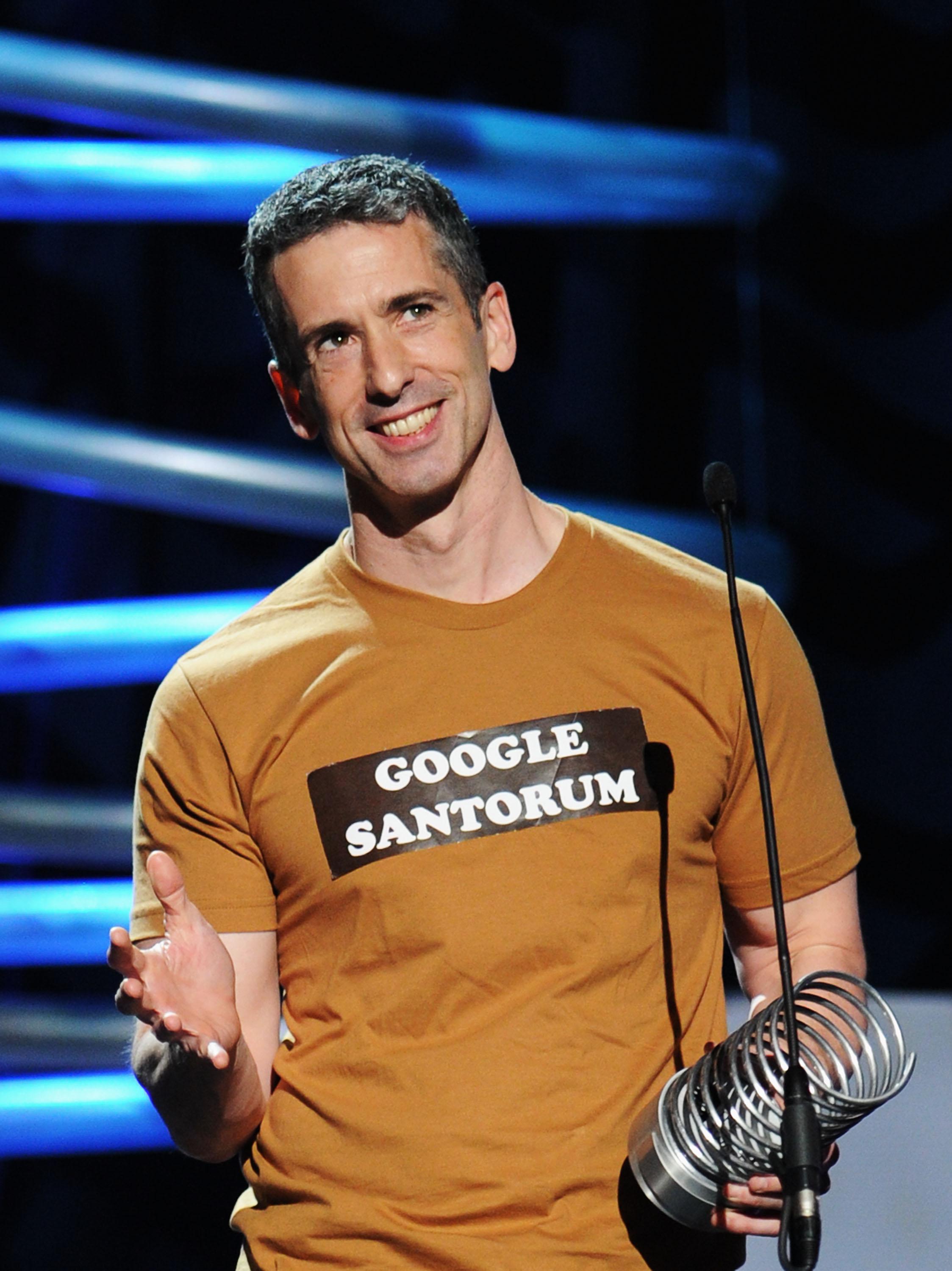The Atlantic Wire reported yesterday that Dan Savage, the prominent sex-advice columnist and LGBT rights activist, was “glitter-bombed” at a recent taping of his new MTV show, Savage U, at the University of Oregon at Eugene. An operative from a group of activists calling themselves the “Dan Savage Welcome Committee” rushed the stage and doused Savage in the shiny stuff—mimicking a protest technique previously reserved for anti-LGBT conservative politicians—for being, in their view, transphobic:
Dan Savage is a transphobic and generally oppressive rich white cis gay man who came to Eugene, OR on Halloween weekend. The Dan Savage Welcoming Committee let him know that he can’t be a douche with impunity.
This is not a new criticism of Savage. Listeners of his popular podcast, Savage Love, know that he often takes heat for his less-than-refined statements on issues like the existence of male bisexuality, the responsibility of asexuals to “come out” before dating, and, indeed, certain issues surrounding transgenderism. He has also been known to use words like “tranny” and “shemale” offhandedly, terms which some members of the LGBT community view as offensive. While he hasn’t yet responded to this particular incident, Savage addressed the bias accusations in a recent interview with The New Civil Rights Movement, noting that his sensitivity towards transgender issues have been evolving over time:
I certainly have had a journey in the last 20 years — as have we all — on trans issues. When I started writing Savage Love 20 years ago, and you can yank quotes 15, 18 years ago and flat them up today and say, ‘You know, that’s transphobic,’ I’d probably agree with you. 15 years ago I didn’t know as much as I know now — nor did anybody.
When I read about the “attack,” my first response was defensive: I do not think the man is really transphobic. If anything, he’s just honest about the struggle it takes to understand and appreciate ways of living and being that are different from our own—only the most naive or ungenerous person would be unable to recognize that such a process is rife with opportunities to position one’s foot squarely in one’s mouth.
But I don’t want to write a defense of Savage as being a shining, all-encompassing paragon of LGBT activism, because, well, he’s not. Depending on your taste, Savage is an amazing sex advisor; his witty, biting, hard-headed opinions, tempered as they thankfully are with moments of self-effacement, make for great entertainment and sometimes even sound information. He’s a born performer. But the limitations of his position as some kind of LGBT spokesperson have always seemed obvious to me. As the glitter guerillas rightly point out, Savage really is just a white gay dude; his understanding of the complex issues affecting people who exist outside of that very small category will necessarily be less-than-nuanced. So why expect him to be an infallible expert (an impossibly heavy mantle that he never claimed)? And why be so upset when he messes up?
The answer, clearly, is that Savage has created a style of activism that is successful, where many more politically correct models have failed. To be fair, his being white and male and good-looking (what his critics would call “privileged”) matters, but his success is about more than that. Savage’s implicit message that one can be an ally to the LGBT community without necessarily getting all the ever-changing words right is understandably appealing to straight people, and his willingness to use a variety of different, sometimes flawed, tools to make even a little progress appeals to LGBT people who feel paralyzed by the absurdly non-confrontational “safe space” fragility instilled in college groups and other bubble-like retreats from reality.
Sure, Savage’s “It Gets Better” project probably depends on classist assumptions that all kids can (or even should) move to big gay-friendly cities for college. But it also provides a modicum of hope and a sense of connection for a lot of kids around the country who had none before. And sure, Savage’s jab at former Sen. Rick Santorum (in which he equated the politician’s last name with the sometimes messy results of anal sex) could probably be considered violent or bully-like. But it also reduced a virulent, hateful opponent of the mere idea of LGBT existence to a public laughingstock.
These methods, while surely not perfect, are also better than nothing. Nor do they preclude the glitter-bombers and other critics of Savage creating their own equally imperfect strategies. What does stifle progress, though, is insisting that one man speak for all (only to judge him when he necessarily fails) instead of finding creative, savvy, engaging ways of speaking for oneself.
